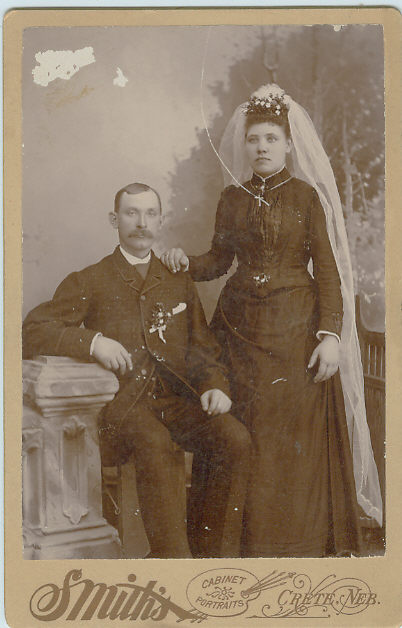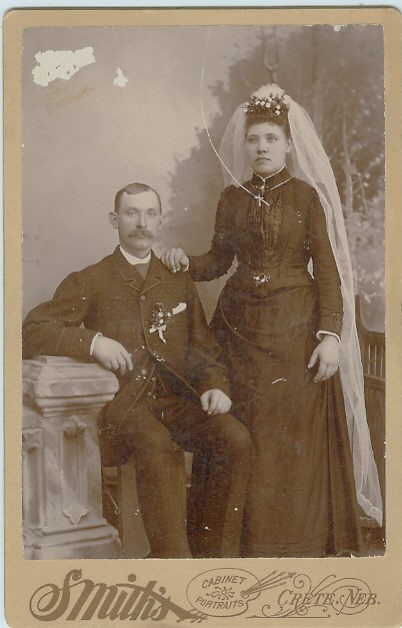

This website was created by Gene Bals on December 1, 2022
All content is the exclusive property of the author, unless noted otherwise.
For permission to ereproduce any content , please contact the author at genebals@bals.info
All content is the exclusive property of the author, unless noted otherwise.
For permission to ereproduce any content , please contact the author at genebals@bals.info
Cattle die, and Kinsman die, and so One dies onself.
But, a noble Name will never die if good renown One gets.
(Havamal 75 - Codex Regius)
But, a noble Name will never die if good renown One gets.
(Havamal 75 - Codex Regius)
In 1975, Franz Joseph Bals of Lusebrink farm told me that the name "Balz" had a meaning in Old German having to do with the "the mating dance of birds". Some time later, I found the word "Baltz" in a dictionary of Old English & Saxon Language in the Texas Tech University Library. It gave the meaning as "The mating dance of a Partridge" which certainly confirmed Franz Joseph's information
If one refers to Webster's New World German Dictionary, Balz is defined as a "courtship display" or a "mating season".
If one substitutes a "W" for the "B" you have the word "Waltz" which may have had the same source.
The history of the farm Lusebrink notes "That the spelling is known to have been different at various times during the last centuries". This has been demonstrated for the name "Bals" which could be written with "tz", "z", or "s".
The first record of the name associated with the farm Lusebrink was an appraisel record in about 1566 tat a Baltz Thies paid a tax of 2 Guilders. This Baltz Thies was a decendent of a Heinrich Thies (or TheyB or Thyas) who received one half of the farm upon the death of the owner, a Thonyes de Wellige, sometime after 1500, and is recognized as the original ancestor of the Bals-Lusebrink family.
The origin of German family names was often the place of residence. Prior to the sixteenth century, it was common for a German to bear same name as his father. This is most likely why we see the name Baltz Thies in 1566.
In John C. TTheibault's work:, German Villages in Crisis: documenting the effects of the Thirty Years War (1618 - 1648) on German villages, the name Baltzer, Balzer and Balss apear as first names in the village records of the Hesse-Kassel region. This region iz in Thuringa, about 60km frkm tne Lusebrnk Farm, so it can be assumed that some version of the name was cmmon in the area. This may also lend credence to the opinion that these names were a shortened version of "Balthasar" one of the biblical "Three Wise Men".
The fist record of the name in the St Cyriakus of Horn-Millinghausen churchbook is the baptism of Tonnies, son of Jurgen Baltz, on the 29 May, 1650, (See a copy of this document on the page for Jurgen in Ancestors in this Website). It should be noted that almost all rural church records before 1650 were destroyed in the Thirty Years War.
In the work Bloodlines of the Bals farm - Lusebrink of Schmerlecke notes that Johnes Heinrich Bals (1768 - 1816) ... slso spelled aso spelled his name with a "tz" - Baltz. This record also notes that Joseph Balz (1855-1930) married his second wife, Theresa Koch-Schulte, in 1897 and "after the wedding and in the later years of 1890's he spells his name with an"s" -Bals". This Joseph was the older brother of Henry and Ferdinand who immigrated to the United States . They apparently changed the spelling at the time of immigration.
Bals as a last name also occurs in Norway and among the Lapps, the migratory people that inhabit the Artic Circle region of Finland, Norway and Sweden. This would seem to confirm that this famly name name has its origins in ancient Saxon times.
If one refers to Webster's New World German Dictionary, Balz is defined as a "courtship display" or a "mating season".
If one substitutes a "W" for the "B" you have the word "Waltz" which may have had the same source.
The history of the farm Lusebrink notes "That the spelling is known to have been different at various times during the last centuries". This has been demonstrated for the name "Bals" which could be written with "tz", "z", or "s".
The first record of the name associated with the farm Lusebrink was an appraisel record in about 1566 tat a Baltz Thies paid a tax of 2 Guilders. This Baltz Thies was a decendent of a Heinrich Thies (or TheyB or Thyas) who received one half of the farm upon the death of the owner, a Thonyes de Wellige, sometime after 1500, and is recognized as the original ancestor of the Bals-Lusebrink family.
The origin of German family names was often the place of residence. Prior to the sixteenth century, it was common for a German to bear same name as his father. This is most likely why we see the name Baltz Thies in 1566.
In John C. TTheibault's work:, German Villages in Crisis: documenting the effects of the Thirty Years War (1618 - 1648) on German villages, the name Baltzer, Balzer and Balss apear as first names in the village records of the Hesse-Kassel region. This region iz in Thuringa, about 60km frkm tne Lusebrnk Farm, so it can be assumed that some version of the name was cmmon in the area. This may also lend credence to the opinion that these names were a shortened version of "Balthasar" one of the biblical "Three Wise Men".
The fist record of the name in the St Cyriakus of Horn-Millinghausen churchbook is the baptism of Tonnies, son of Jurgen Baltz, on the 29 May, 1650, (See a copy of this document on the page for Jurgen in Ancestors in this Website). It should be noted that almost all rural church records before 1650 were destroyed in the Thirty Years War.
In the work Bloodlines of the Bals farm - Lusebrink of Schmerlecke notes that Johnes Heinrich Bals (1768 - 1816) ... slso spelled aso spelled his name with a "tz" - Baltz. This record also notes that Joseph Balz (1855-1930) married his second wife, Theresa Koch-Schulte, in 1897 and "after the wedding and in the later years of 1890's he spells his name with an"s" -Bals". This Joseph was the older brother of Henry and Ferdinand who immigrated to the United States . They apparently changed the spelling at the time of immigration.
Bals as a last name also occurs in Norway and among the Lapps, the migratory people that inhabit the Artic Circle region of Finland, Norway and Sweden. This would seem to confirm that this famly name name has its origins in ancient Saxon times.
Bals, Balz & Baltz
The History of the Family of Henry & Elizabeth Bals of Nebraska
The History of the Family of Henry & Elizabeth Bals of Nebraska
From information compiled and edited by Gene Bals © 2014

This Website was created by Gene Bals in January 2025
All content is the exclusive property of the author.
Contact the auther at genebtx@gmail.com for permission to reproduce content in other documents.